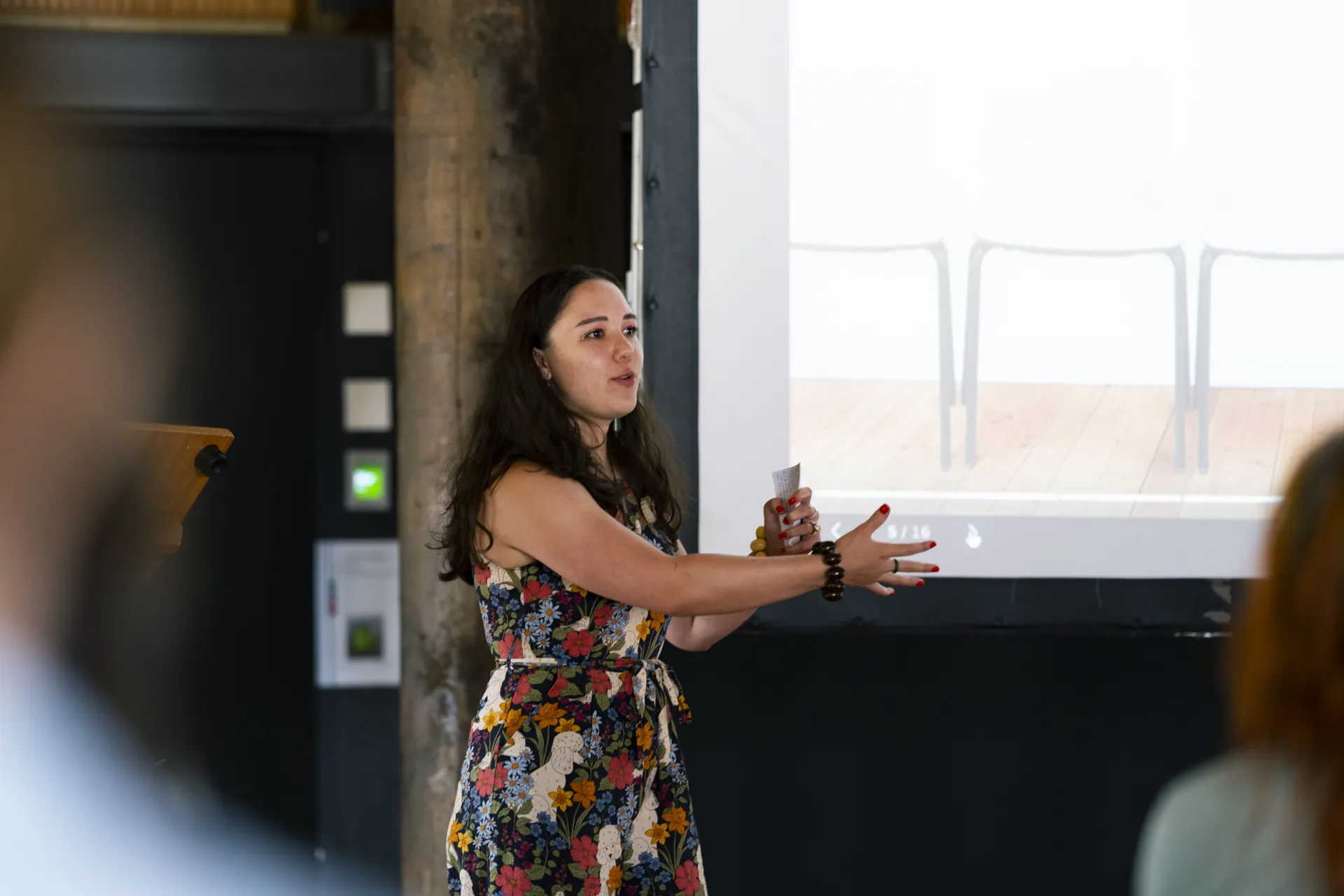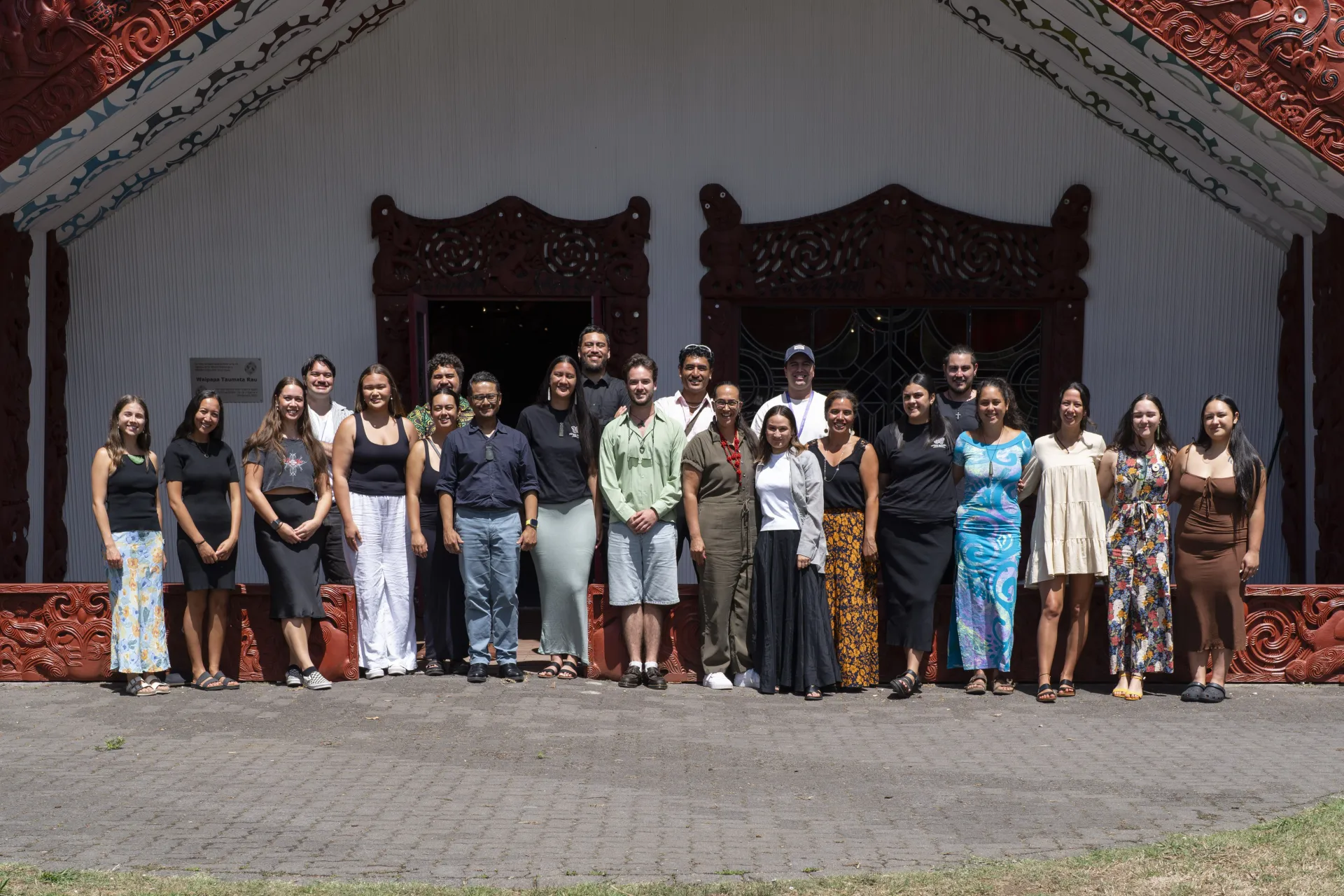Building mātauranga Māori for heart-health equity
Kura Raumati, Māori Summer Research Scholarship Programme
The first of its kind, the Kura Raumati research scholarship programme was uniquely tailored to support tauira Māori and maximise the positive impact on heart health equity.
Applications are now open for our 2024/25 programme - see Funding Opportunities.
Tauira from the 2023/24 programme talk about their experience - https://youtu.be/jULNiusHksk
An initiative from Te Ara Poutama, an integrated research module co-funded by Pūtahi Manawa and the Heart Foundation, hosted by The Centre For Health in the Bay of Plenty, the scholarships were awarded using more holistic criteria, not focusing on traditional academic measures but on students’ passion for improving Māori heart health outcomes.
Dr Karen Brewer (Whakatōhea, Ngaiterangi), Co-director of Māori for Pūtahi Manawa, says that’s because grade point averages are poor measures of a student’s commitment and capability.
“The students brought with them a vast array of life experiences and skills that aren’t reflected in an academic transcript, but are the most important for research and health practitioners,” she explains.
Dr Anuj Bhargava, Pūtahi Manawa’s outreach and education lead, says applicants were asked to describe their project and explain why it was important to them.
“They also needed to be available mentally and physically, with whānau support, for a research project that could be done close to home, in and alongside their own communities.”
Erina Korohina (Ngāti Porou) is a research fellow with The Centre For Health and the Pou Ako Lead on the programme. She says the quality of the applicants was outstanding.
“We had 67 applicants, and if we’d had 67 positions available, we’d have taken all of them.”
Building community relationships
Dr Brewer supervised a student and also lent her expertise on kaupapa Māori and the tauira’s roles as researchers in the community. She says she was impressed with the student’s capacity to create that essential community connection.
“While [my student] was gaining research and community health experience, she was also building relationships in the Waikato communities for Pūtahi Manawa, which Pūtahi Manawa didn’t previously have.”
That community connection was built into the fabric of the scholarships. Students were encouraged to work from their home locations and immerse themselves in their communities – often where their research is most needed. This model promotes practical, emotional and cultural connections to the work, enhancing both the research process and its outcomes.
Scholarship recipient Fushia Tibble (Ngāti Porou) worked alongside Ngāti Porou Oranga to study the CREBRF gene within the iwi’s health research system.
“Seeing firsthand that there is a way and a method to do that within taha Māori and Ngāti Porou mātauranga has been incredible. It’s really encouraging for me as a future researcher,” says Ms Tibble.

Empowering tauira with kaupapa Māori
The programme was open to all tauira with whakapapa Māori who were undertaking tertiary studies in any health field. It was designed to encourage researchers to work with other students, their local communities and Māori supervisors and mentors.
Mrs Korohina says the tauira-supervisor relationship was better described as tuakana-teina, which allowed supervisors to learn from the tauira too.
“We call them tauira, but they were actually kairangahau – researchers in their own right – because they contributed their knowledge and experiences to what we were doing with them,” she explains.
Building their work around kaupapa Māori empowered students and expanded the potential value of the students’ research while enriching their projects with their iwi knowledge and methodologies.
Ms Tibble adds that a key opportunity of the programme was that tauira had the space to celebrate their whakapapa.
“We got to be Māori safely and unapologetically,” says Ms Tibble.
The next generation of Māori heart-health workers
Dr Brewer says the programme inspires a new generation of Māori researchers and healthcare workers and gives them a peer group and support network.
“It sets them up for their studies and future careers,” she explains. “You can’t underestimate the importance of the Māori health workforce – they’re a precious group of people.”
Mrs Korohina agrees, saying that for whānau, dealing with practitioners who understand you is key to closing the heart-health equity gap for Māori.
“I’m so stoked to know that this is our next generation of health professionals entering the workforce. Like, look out, world,” she says.
$9000, 10 weeks, broad impact
Students were awarded up to $9,000 to commit fully to their research for the summer break – up to 10 weeks. At the end of the programme, they delivered a detailed report of their project’s outcomes. Students also received a stipend that meets the living wage to ensure the research isn’t side-lined by financial stress.
Beyond supporting their summer work, this scholarship is designed to spark a deeper interest in research, one that students can carry into their future careers or as a stepping stone toward advanced degrees.
“I knew some of those students and I didn’t think they were inclined to research,” says Dr Bhargava. “It’s amazing what a little support can do.”
A community of scholars
The programme kicked off with a five-day wānanga at a marae, establishing a strong cohort and cultural foundation.
“Most of us had never met before, but we became a collective; it was very emotional,” says Dr Bhargava.
Mrs Korohina says the diversity amongst the tauira was amazing, with some just starting their university careers and others well advanced. Likewise, many had been raised on their marae, while others were only just starting to learn about their identity as Māori.
“It was a beautiful mix – everyone connected and supported each other,” she says.
At the end of the programme, students came together again to present their projects to Pūtahi Manawa Co-Directors, other scholars, and their whānau, celebrating their achievements and learning from each other.

“Our kairangahau were amazing. What they were able to do over what was essentially just six weeks was fantastic,” says Mrs Korohina.
The summer ends, but the connection doesn’t. Participants are encouraged to join as student members of Pūtahi Manawa, continuing their involvement with ongoing support, catch-ups and opportunities.
“It was really, really awesome. I’m so proud. If we could upscale this and run it in a bigger way, that would be amazing,” says Mrs Korohina.
Dr Bhargava thinks the Kura Raumati programme is “one of the best things we’ve done in Pūtahi Manawa.”
“It’s amazing what people can achieve when they believe in what they’re doing and have someone who believes in them.”



